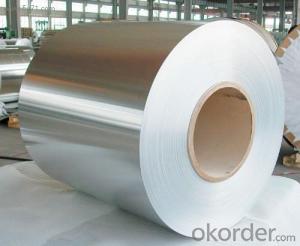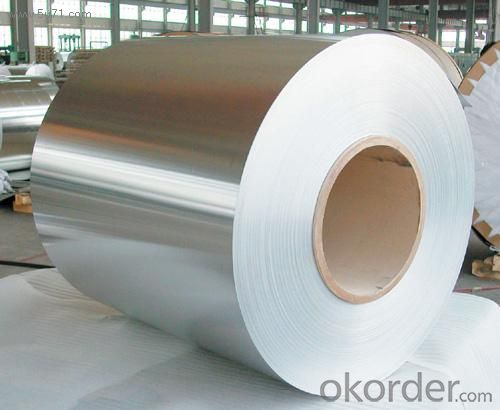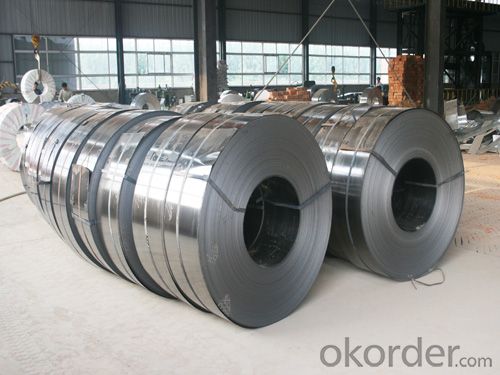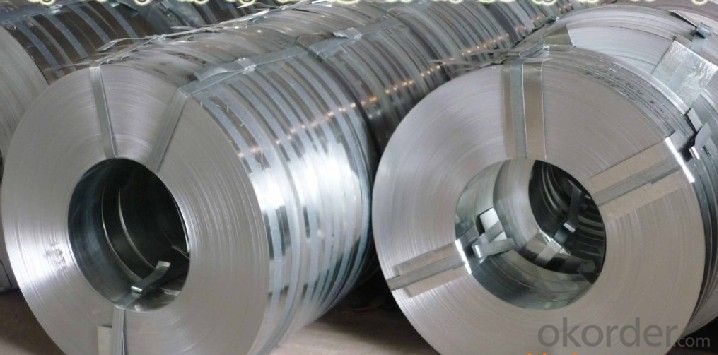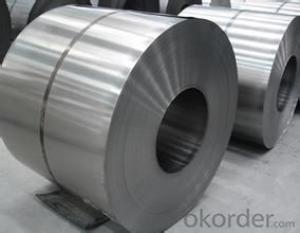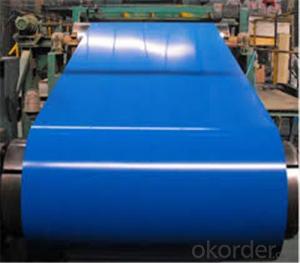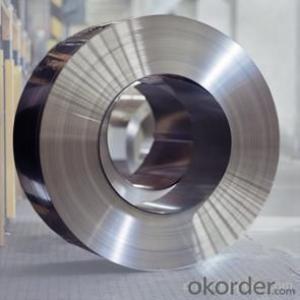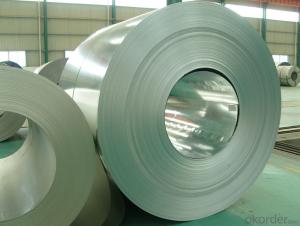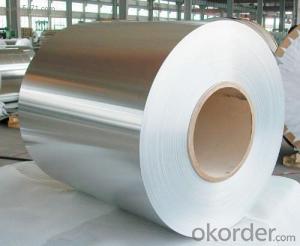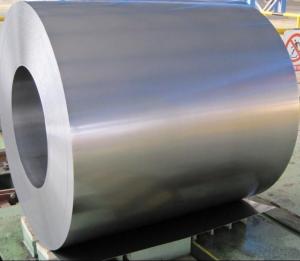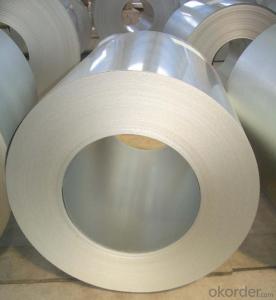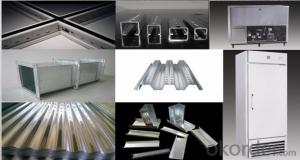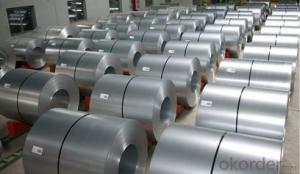Hot-dip Zinc Coating Steel Building Roof Walls -- Excellent Process Capability
- Loading Port:
- China main port
- Payment Terms:
- TT OR LC
- Min Order Qty:
- 50 m.t.
- Supply Capability:
- 10000 m.t./month
OKorder Service Pledge
OKorder Financial Service
You Might Also Like
Hot-dip Zinc Coating Steel Building Roof Walls -- Excellent Process Capability
1.Structure of Hot-Dip Galvanized Steel Sheet Description:
Hot-dip galvanized steel coils are available with a pure zinc coating through the hot-dip galvanizing process. It offers the economy, strength and formability of steel combined with the corrosion resistance of zinc. It is especially useful for countless outdoor and industrial applications. Production of cold formed corrugated sheets and profiles for roofing, cladding, decking, tiles, sandwich walls, rainwater protective systems, air conditioning duct as well as electrical appliances and engineering.
2.Main Features :
• Excellent process capability
• Smooth and flat surface
• Workability, durability
• Excellent anticorrosive property
• High strength
• Good formability
• Good visual effect
3.Hot-Dip Galvanized Steel Sheet Images
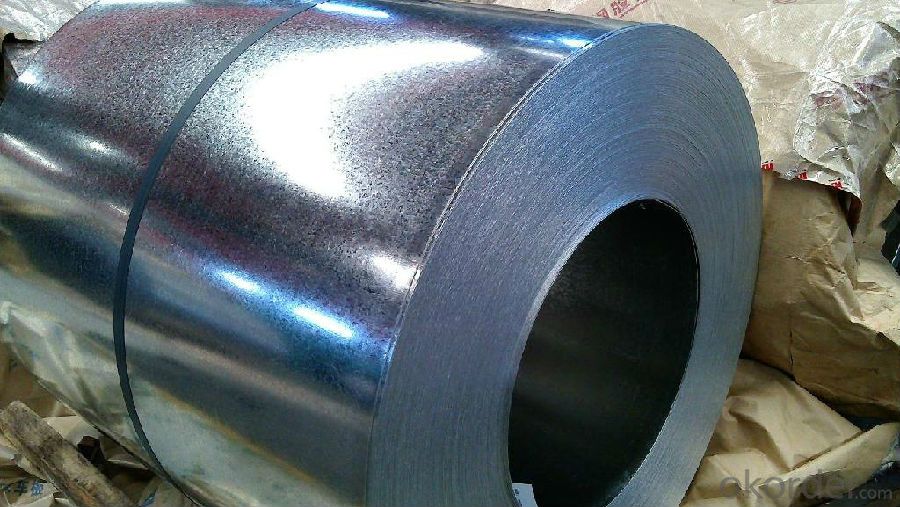
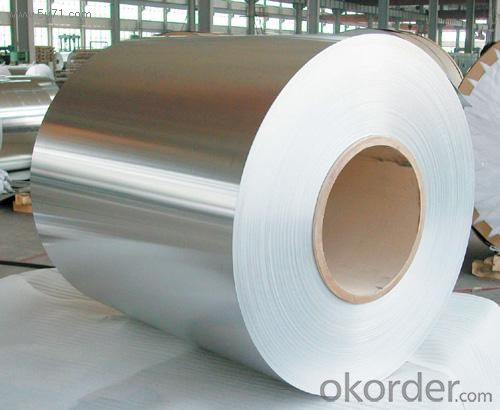
4.Hot-Dip Galvanized Steel Sheet Specification
Standard: ASTM, JIS,EN
Grade: CS, DX51D+Z,SGCC, SS 230~550,S220GD+Z~S550GD+Z, SGC340~SGC570
Thickness: 0.18mm~5mm
Width: max 2000mm
Coil weight:3-12 MT
Surface structure: zero spangle, regular spangle or minimum spangle
Surface treatment: Chromate treatment, Oiled/dry, skinpassed/non-skinpassed
5.FAQ :
We have organized several common questions for our clients,may help you sincerely:
1.How to guarantee the quality of the products?
We established the international advanced quality management system every link from raw material to final product we have strict quality test;2. How long can we receive the product after purchase?
Usually within thirty working days after receiving buyer’s advance payment or LC. We will arrange the factory manufacturing as soon as possible. The cargo readiness usually takes 15-30 days, but the shipment will depend on the vessel situation.
- Q: What are the dimensions of steel coils used in the appliance industry?
- Steel coils used in the appliance industry can have varying dimensions depending on the specific application and requirements. However, a typical range for these coils is a thickness of 0.015 to 0.035 inches (0.38 to 0.89 millimeters), a width of 24 to 36 inches (61 to 91 centimeters), and a weight between 1,500 to 10,000 pounds (680 to 4,535 kilograms). These dimensions are chosen to facilitate efficient handling, transportation, and processing during the appliance manufacturing process. It is important to verify these dimensions with the manufacturer or supplier for accurate and current information.
- Q: i'm looking into pedal steel guitars, and I would like some suggestions or links and info on what kind i should get.
- Try okorder -The Art of Steel Guitar/ Steel guitar players -Take it away Leon- McAuliffe and 'Speedy West' were a couple greats. In the late '50s, Speedy was playing a Fender 1000 Pedal steel. He often did duets with Jimmy Bryant The Fastest Guitar Player In The Country! / note also the 'Emmons Guitar Company':
- Q: What is the shelf life of a steel coil?
- The shelf life of a steel coil can vary depending on various factors such as the type of steel, storage conditions, and specific industry requirements. However, in general, if properly stored and protected from moisture, corrosion, and other damaging factors, a steel coil can have a shelf life of several years.
- Q: How are steel coils coated?
- Steel coils are typically coated through a process known as coil coating, which involves applying a protective layer to the surface of the steel. This is done by passing the coil through a series of rollers that apply the coating material evenly across the entire surface. The coating can be applied using various methods such as roll coating, spray coating, or electrostatic coating, depending on the desired finish and properties. The coated steel coils are then cured or baked to ensure the coating adheres properly and provides the desired level of protection and durability.
- Q: Do any tour players use steel shafted woods? And are there any real advantages to having steel shafted woods? I have only played with one person to use steel shafted woods, he tells me thats because he cant hit it straight with graphite, however he is a very short hitter.
- Steel shafts will provide more accuracy, but they are much heavier than graphite (obviously). They have extremely low torque ratios which allows them to be more accurate. However, you need to have a very fast, controlled swing to be successful with steel shafted woods. Notice that only a few PGA Tour pros have them.
- Q: i know stainless steel swords are decoration, what metal is ok for a sword that is usable
- Why the interest in a 'usable' sword ~~ are you really going to use it?
- Q: What is future prospect of these steel structures, are they really weather proof like everyone believes??
- Which steel buildings are you asking about? The Empire States Building has a steel frame and is completely weatherproof. Most industrial factories have steel frames and are weatherproof. It is the cladding that makes them weatherproof. By the way there is a difference between weatherproof and waterproof.
- Q: How are steel coils used in the manufacturing of conveyor belts?
- Steel coils are used in the manufacturing of conveyor belts as they provide the necessary strength and durability required for transporting heavy loads. The steel coils are processed and shaped into strong, flat strips that are then woven or bonded onto the belt's surface, enhancing its strength and resistance to wear and tear. This ensures that the conveyor belt can efficiently and reliably carry materials across various industries, including mining, logistics, and manufacturing.
- Q: Is this a strong, durable piece of steel that can take abuse? I'm thinking about using it on a small project.
- Hey Ramzi, I met this chick and was wondering if you could tell me if she would make a good wife. Here's your answer: Big Blue, there are a hundred bits of information I would need, and even then there are mysterious factors that affect the outcome. So basically, I don't have the slightest idea. My answer to your question is exactly the same. Without showing exactly how the Simpson Tie is being used, there is obviously no way to know if it is suitable. Can it be tempered? Sure, but again, I give it a 99% likelihood it will not help in your application. Explain it in detail in 5 to 10 sentences. Give us diagrams and photos. If you can't or won't do that, here's Plan B. Head over to your nearest machine shop, and ask the machinist what he thinks. He will ask the probing questions to understand the needs of the part. It is likely a Simpson Tie won't do it but he is in a good position to suggest a workable approach, and then sell it to you. By the way, if this is a load-supporting member of a motorcycle or some other fast moving vehicle, be prepared to get kicked out of the machine shop. The risk of making an error is high and the outcome extremely dangerous. I would not risk a million dollar lawsuit in order to sell you a $10 part.
- Q: So carbon is gas that brakes down to hydrogen and helium before going in...And steel can go a little farther towards sun before evaporating.. 200 degrees closer at leastso steel is full of a heavier gas bomb in my hypothesis and needs to be broken up outside stars(broken down)Is steel capable of going into sun with an element thats wrong wayLike iron has no air to boil outAnd steel goes just as far with carbon in it..Other words can u answer me with..Carbon is already IN the sun and is capable of braking down Carbon INSIDE the star/sunOnly way I see steel boiling is inside and it releases carbon gas at once..carbon bomb
- Hi: okorder /
Send your message to us
Hot-dip Zinc Coating Steel Building Roof Walls -- Excellent Process Capability
- Loading Port:
- China main port
- Payment Terms:
- TT OR LC
- Min Order Qty:
- 50 m.t.
- Supply Capability:
- 10000 m.t./month
OKorder Service Pledge
OKorder Financial Service
Similar products
Hot products
Hot Searches
Related keywords
